Our sustainability management
Basic Policy for Sustainability
In recognition of the importance of establishing a corporate structure capable of adapting to any changes in the business environment, the Mitsubishi Steel Group has adopted sustained and global growth based on the development of competitive businesses as its fundamental management policy. We aim to be a more reliable business by fulfilling our social mission, and we will contribute to the realization of a sustainable society through dialogue with all stakeholders, including customers, suppliers, shareholders, employees, and local communities, based on our Corporate Philosophy, the Mitsubishi Steel Group Code of Conduct, and the Detailed Rules for Mitsubishi Steel Manufacturing Group Corporate Code of Conduct.
Environment
The Mitsubishi Steel Group will get actively involved in protecting the environment in all aspects of business activities with a heightened awareness that conservation of the global environment is one of the most crucial challenges facing mankind.
Social
The Mitsubishi Steel Group will respect human rights, character, individuality, and diversity, seeking to galvanize the company by fostering human
resources as well as ensuring a safe and pleasant work environment.
Governance
In its global business activities, the Mitsubishi Steel Group will comply with the laws and regulations or code of ethics in society for transparent, fair, and equitable transactions under free competition, pursue optimal corporate governance at all times to maximize corporate value, and continually strive to enhance these efforts.
Our sustainability promotion structure
Our Sustainability Committee (chaired by the President & CEO) discusses priority topics concerning sustainability. Sustainability is also deliberated on by the Board of Directors, on a monthly basis in principle.
We have also established the Global Environment Committee, Carbon Neutral Committee, and ESG Subcommittee under the umbrella of the ustainability Committee, to promote sustainability initiatives across the Company, including assessments and management of sustainability-related risks and opportunities.
Key topics in reports to and reviews by the Board of Directors in FY2022
- Progress to achieve carbon neutrality
- Human rights initiatives
- Disclosure based on the Task Force on Climate-related Financial Disclosures (TCFD) recommendations
- Activities to contribute to society and coexist with local communities
- Human capital initiatives
- Sustainability disclosure
Our sustainability promotion structure
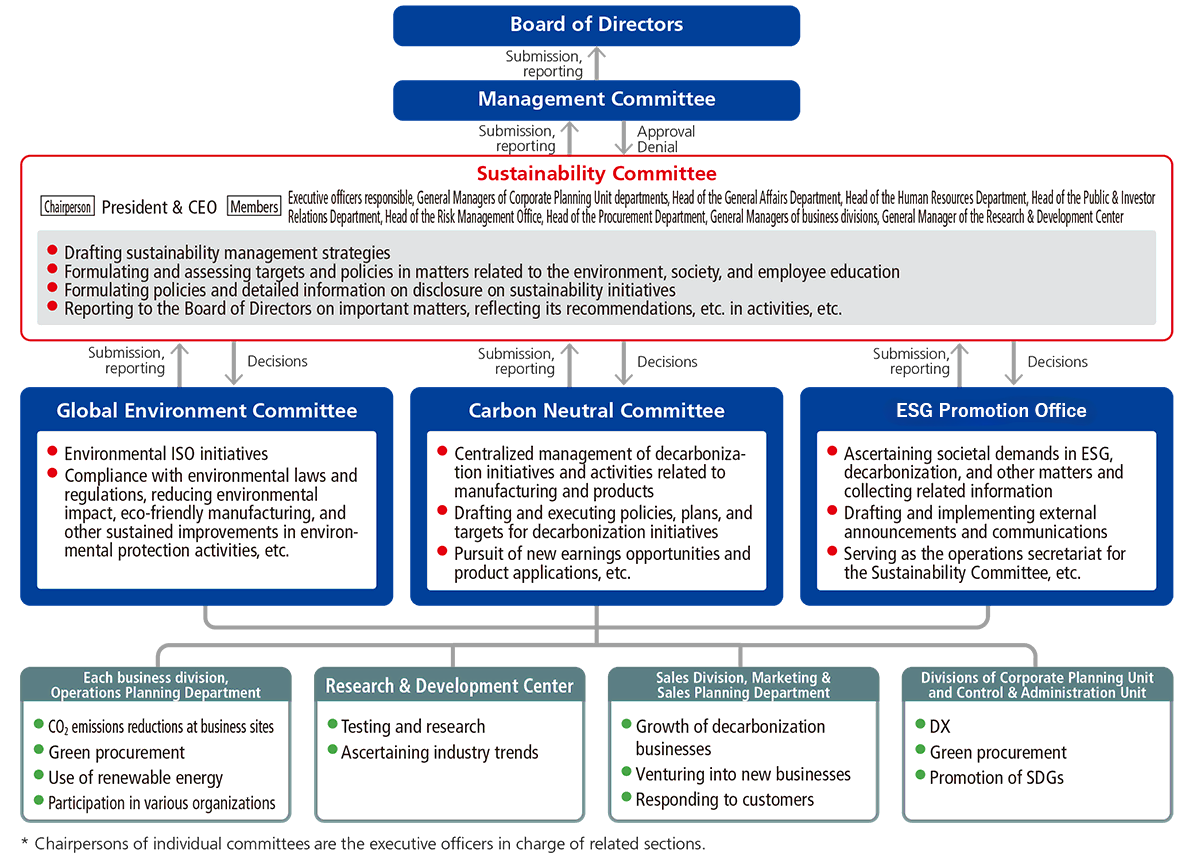
Our priority materiality items
To promote our sustainability management more effectively, we have selected five priorities from themes identified along the axes of internal importance and external expectations for the Group and organized them based on their relationships to the 17 goals and 169 targets of the Sustainable Development Goals (SDGs).
We are also reexamining and partially revising these priorities in light of considerations such as including contemporary social conditions and the changing business environment.
We will help establish a sustainable society while realizing sustained growth and increasing corporate value by further expanding and advancing these activities. See the corresponding pages of this Report indicated below for detailed information on individual initiatives.
Relationships between priority topics and the SDGs and details of the activities
| Priority | Main initiatives | Corresponding SDGs | Related Pages |
|---|---|---|---|
| New business creation and developing strategic businesses |
| 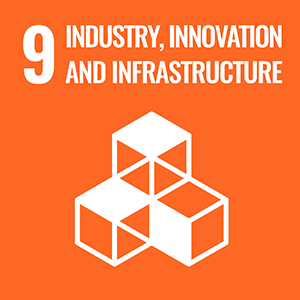 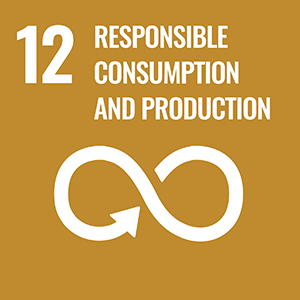 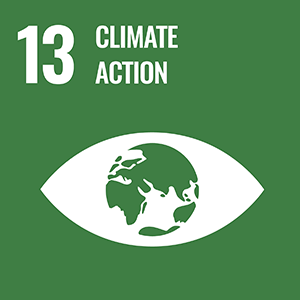 | |
| Eco-friendly products |
| 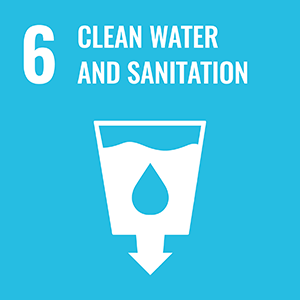   | |
| Eco-friendly production |
| 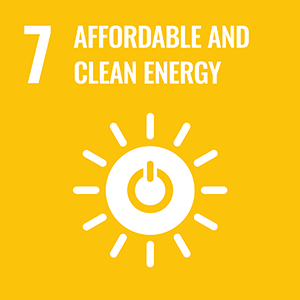   | |
| Promoting human capital management |
| 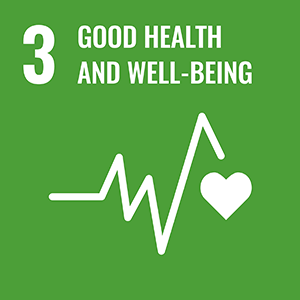 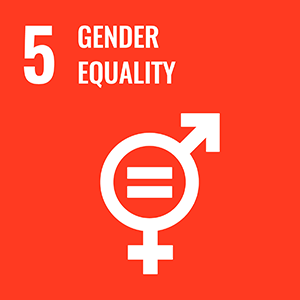 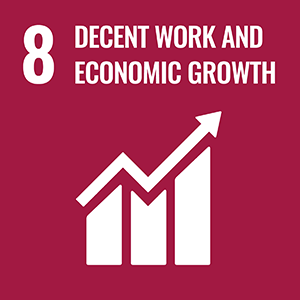 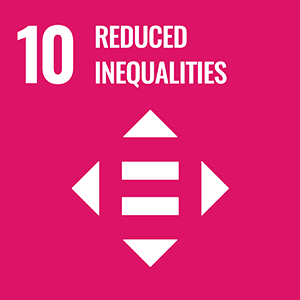 | |
| Enhancing governance |
|   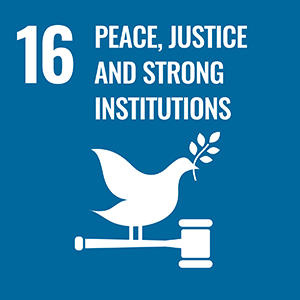 |